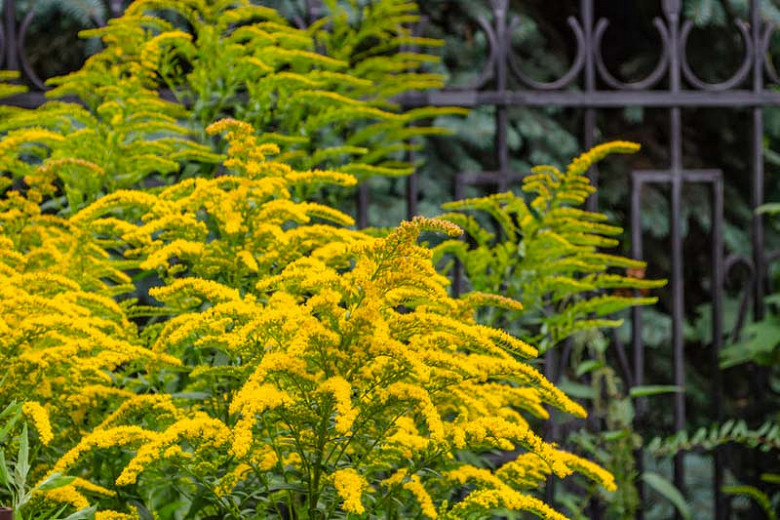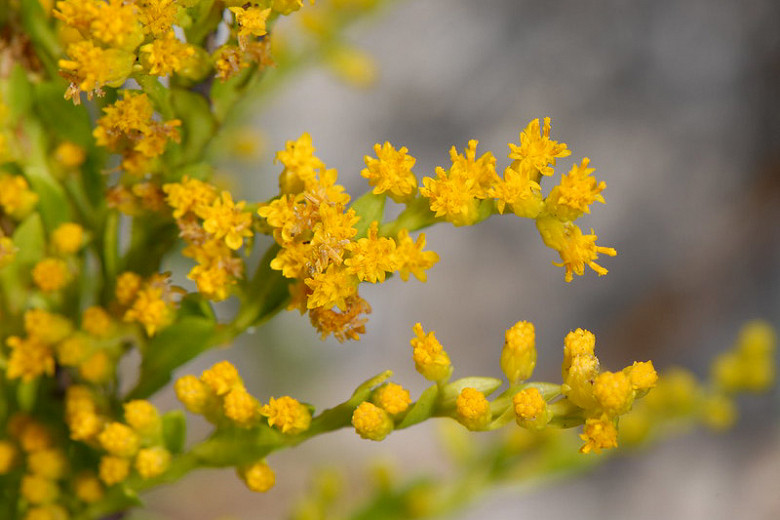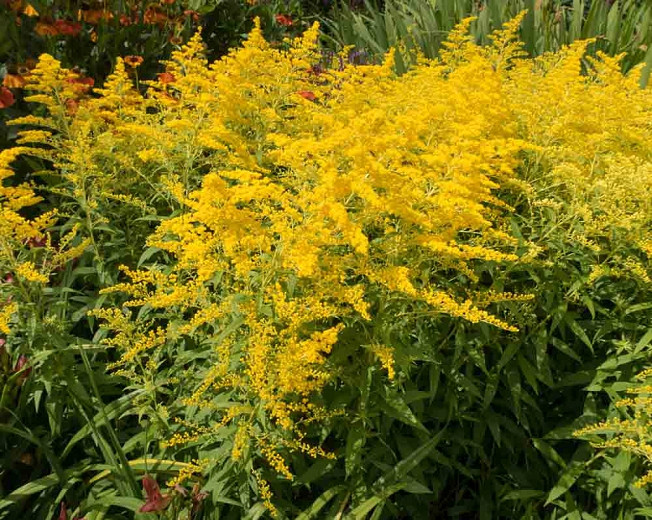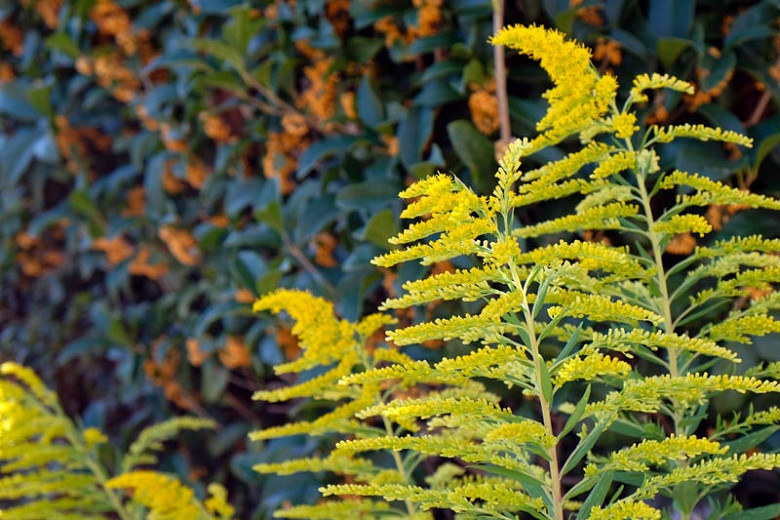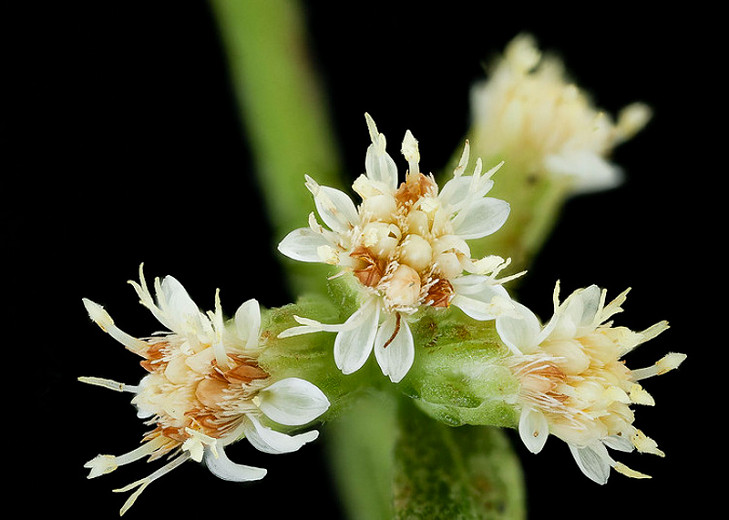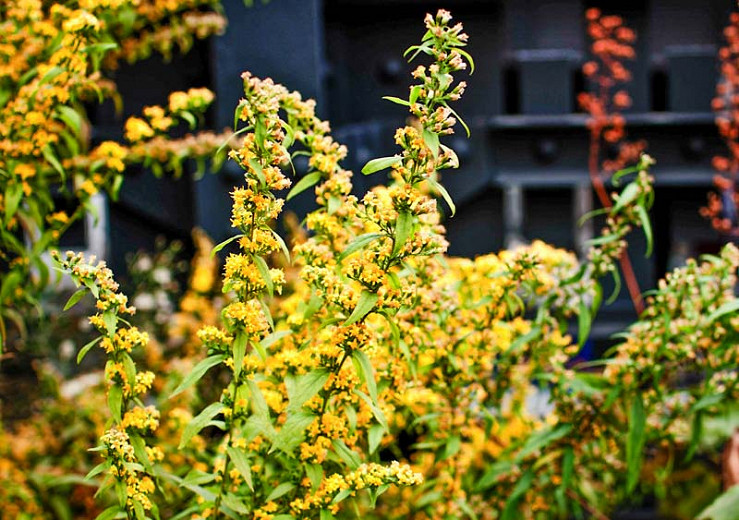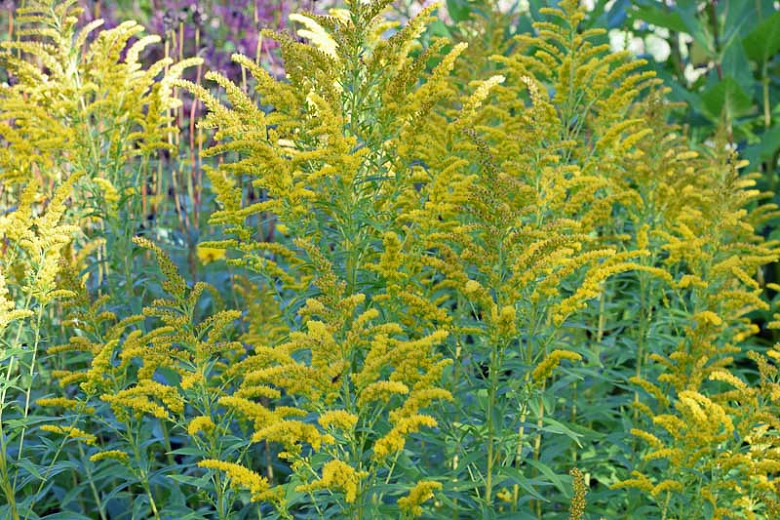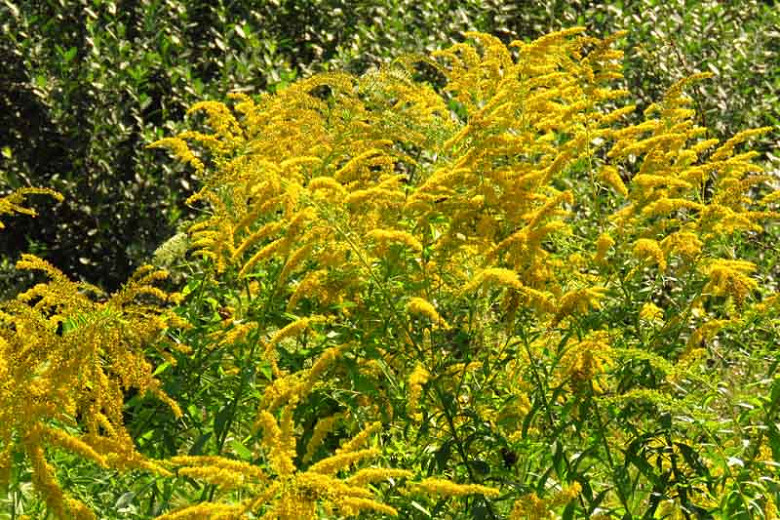Solidago rugosa (Rough Goldenrod)
Compact and cascading, Solidago rugosa (Rough Goldenrod) is a clump-forming perennial boasting eye-catching arching sprays packed with small, bright yellow flowers in late summer and fall. They are borne at the ends of rough, hairy stems clad with ovate to lanceolate, sharply serrated, green leaves, 4 in. long (10 cm). The upper surfaces of the leaves have a wrinkled appearance due to the indentations of their pinnate veins, hence the name of Wrinkleleaf Goldenrod. The nectar and pollen of the flowers attract and support 115 species of insects, including small bees, wasps, flies, small butterflies, skippers, and beetles. The dried seeds provide a food source for birds in fall and winter. Adding a bold splash of color in the late season garden, Rough Goldenrod spreads by rhizomes and self-seeding to form colonies. Easy to grow, low care, and fairly trouble-free, it makes a perfect choice for the sunny border or naturalized areas where it can roam freely. The cultivar 'Fireworks' is more compact, easier to contain, and flowers more vigorously than the species.
- Grow up to 3-5 ft. tall and wide (90-150 cm).
- Thrives in full sun or light shade, in average, slightly acidic, medium to wet, well-drained soils. It is not fussy about soils and tolerates clay soils and wet soils.
- Vital ingredient of late summer and fall borders, cottage gardens, prairies and meadows where it adds color and texture. Also valued for the excellent quality of its cut flowers.
- No serious pest or disease issues. Keep an eye out for rust, powdery mildew or leaf spot. Deer resistant.
- Division of the basal rosettes, usually in late winter, is the easiest method of propagation.
- Native to eastern North America.
Requirements
| Hardiness | 4 – 8 |
|---|---|
| Heat Zones | 4 – 9 |
| Climate Zones | 1, 1A, 1B, 2, 2A, 2B, 3, 3A, 3B, 4, 5, 6, 7, 8, 9, 10, 11, 14, 15, 16, 17, 18, 19, 20, 21, 22, 23 |
| Plant Type | Perennials |
| Plant Family | Solidago – Goldenrods |
| Exposure | Full Sun |
| Season of Interest | Summer (Late)Fall |
| Height | 3' – 5' (90cm – 150cm) |
| Spread | 3' – 5' (90cm – 150cm) |
| Spacing | 48″ – 60″ (120cm – 150cm) |
| Water Needs | Average, High |
| Maintenance | Low |
| Soil Type | Clay, Loam, Sand |
| Soil pH | Acid, Neutral |
| Soil Drainage | Moist but Well-Drained |
| Characteristics | Cut Flowers, Showy |
| Native Plants | United States, Midwest, Illinois, Indiana, Michigan, Missouri, Ohio, Wisconsin, Northeast, Connecticut, Delaware, Maine, Massachusetts, Maryland, New Hampshire, New Jersey, New York, Pennsylvania, Rhode Island, Vermont, Southeast, Alabama, Arkansas, Florida, Georgia, Kentucky, Louisiana, Mississippi, North Carolina, South Carolina, Tennessee, Virginia, West Virginia, Southwest, Oklahoma, Texas |
| Tolerance | Clay Soil, Deer, Wet Soil |
| Attracts | Bees, Birds, Butterflies |
| Garden Uses | Beds and Borders |
| Garden Styles | Informal and Cottage, Prairie and Meadow |
